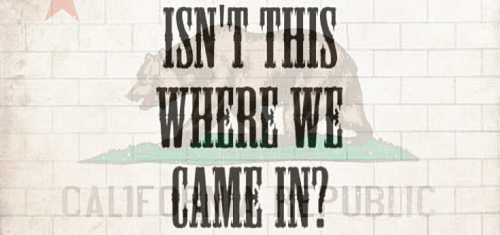 California’s online poker stakeholders remembered their lines this week, reacting exactly as one would expect them to following this week’s proposed amendments to the state’s latest online poker bill.
California’s online poker stakeholders remembered their lines this week, reacting exactly as one would expect them to following this week’s proposed amendments to the state’s latest online poker bill.
Seriously, we’re telling you upfront that this is not one of those ‘up is down, black is white’ stories. If you’re at all familiar with California’s online poker story to date, you need go no further. But if you truly have two or three minutes to spare, read on, Macduff…
The most notable tweak to Assemblyman Adam Gray’s AB 2863 bill was the new definition of a ‘bad actor’, i.e. a person or company that would be deemed unsuitable to participate in the state’s regulated online poker market.
Under Gray’s amended bill, the doors to California’s poker market would be barred to any company that took wagers from US citizens after Dec. 31, 2011. That‘s five years later that most other bills of this sort, and over eight months after online poker colossus PokerStars exited the market.
Predictably, Stars new owner Amaya Gaming and the California tribes and cardrooms with which it has partnered rushed out a statement calling the amendments “a step in the right direction” and praising Gray for ‘moving the ball forward on iPoker.”
But since an influential collation of tribes led by the Pechanga and Agua Caliente bands has made it clear that they are adamantly opposed to PokerStars operating in California, Gray’s proposed amendments are like waving a red flag to a bull. And on Friday, the coalition waved back (if it’s possible to wave with just the one finger).
BREAKING NEWS: WATER IS WET
In a letter to Gray obtained by OnlinePokerReport‘s Dave Palermo, the coalition offers the usual platitudes re Gray’s efforts to untie this Gordian knot. The letter then notes that most online poker companies left the US market following the 2006 passage of the Unlawful Internet Gambling Enforcement Act (UIGEA) while PokerStars didn’t leave until it was indicted by the US Department of Justice in April 2011.
The coalition says establishing a Dec. 2011 pass/fail hurdle “grants a free pass to the most egregious foreign offenders” that continued to serve the US market post-UIGEA and thereby “evaded paying tens of millions in California taxes” while the state was busy “making painful budget cuts.”
The coalition repeats that it had, “in the spirit of compromise,” twice proposed strict suitability standards that would allow bad actors to protest their innocence (albeit with little to no hope of washing away their guilty stains). The letter helpfully reminds Gray that these tough standards are still perfectly acceptable to the coalition.
As for Gray’s proposal to bar the use of companies’ pre-legalization online poker databases until 2019, the coalition calls the proposed language “even less effective.” The letter notes that Gray’s language says regulators “may” impose such a ban, and the coalition believes such matters “should be a matter of state public policy – not a matter of discretion for regulators.”
As if that weren’t enough, the coalition also isn’t wild about Gray’s proposed tax and fee structure, suggesting Nevada’s 6.8% online poker tax is preferable to Gray’s tiered rates. The fact that California’s upfront license fee was increased to $12.5m while eliminating the plan to credit this payment against future taxes owed “undermines the viability of this new industry” (although it’s the only way the state will come even remotely close to providing racing with its $60m bribe for not offering online poker).
So there you have it. Gray’s amended AB 2863 will be discussed by the Assembly’s Appropriations Committee on Wednesday, June 15. Other than that, you’ve learned absolutely nothing new in the last few minutes. But you can’t say you weren’t warned.
